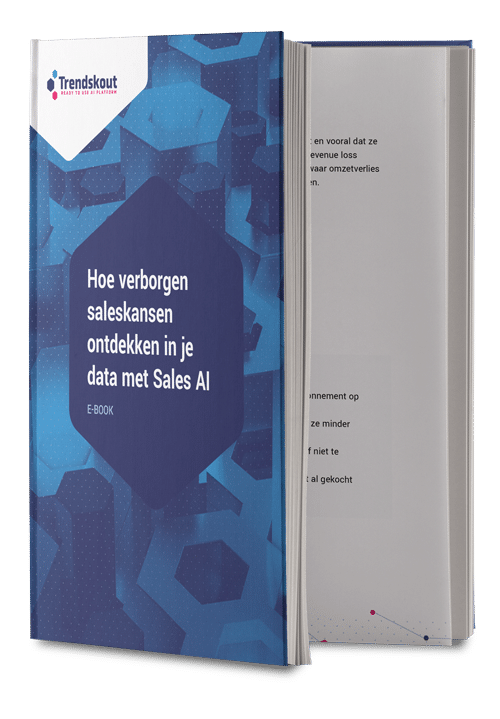On our own blog, we still see it. A very popular blog article remains that one piece on "Will AI take over our jobs?". That shows how narrow the approach to AI remains. While there are so many opportunities for companies that are neglecting this by taking too narrow a view of AI. Opportunities that can be exploited today. If only you dare to abandon that narrow-minded view of AI. This is why we do away with 5 persistent myths about AI.
AI increases opportunities. And it is not up to IT professionals to do this. Sales managers and marketing executives also need to create value for AI through business benefits establish, such as cost savings and operational improvement, by providing practical applications of the technology.

Myth 1: AI is a superfluous luxury in tough economic times
AI emerges as an important tool for cost optimisations and business continuity. Contrary to the misconception that AI is an unnecessary luxury when companies are struggling with cash flow and uncertain economic conditions, AI actually generates revenue. The improves customer interactions, analyses data faster, generates early alerts for customer loss and automates decision-making.
Myth 2: To implement AI, you need specialised employees
A lack of staff skills combined with poor data. This is by far the biggest concern. Companies that lack the staff to handle data and manage AI are hesitant to take the plunge and drop out. While this has long since become unnecessary. Our own product is a prime example of this. By relying on a platform developed by data scientists, you just make use of AI and ML knowledge without having to bring in the hard-to-find testers.
Myth 3: Artificial Intelligence and Machine Learning are the same thing
Machine Learning is a part of artificial intelligence. ML requires a well-thought-out training and data acquisition strategy. AI, on the other hand, is an umbrella term for a wide range of computing techniques, ranging from ML and rule-based systems to optimisation techniques and natural language processing (NLP).
Read more about: Artificial Intelligence, Machine Learning and Deep Learning: what is the difference?
Myth 4: My business does not need AI
Every organisation should at least consider the potential impact of AI on its strategy and explore how this technology can be applied to the organisation's business challenges. Not being prepared to do this is like forsaking the next phase of an automation. And companies do already realise that this is could put them at a competitive disadvantage.
Even if AI is not an immediate solution to a problem, companies should dare to periodically review the decision not to implement AI yet. Companies need to find suitable use cases that harness the power of AI.
In the next four years, 69% of what a manager currently does will be automated. In such a disruptive environment, companies need to consider How to best integrate AI into their strategy and ready for the coming dislocations.
Myth 5: AI systems are only as good as the data they get
While data is an important part of training a model, no dataset will be perfect in the real world. It is possible to correct training data deficiencies such as data scarcity, low-quality data and unbalanced data through techniques such as careful problem formulation, targeted sampling, synthetic data, or building constraints into models.
Conclusion
Many executives simply do not yet understand the transformative power of AI and rely too much on outdated tools. However, these are much more vulnerable to security risks and errors. One solution to this is to directly demonstrate the many benefits of artificial intelligence to decision-makers and cite cases that demonstrate the potential of AI. With Trendskout, we have taken this democratisation and debunking of countless myths as our mission. We want to show opportunities to companies and do so through a targeted demo.

